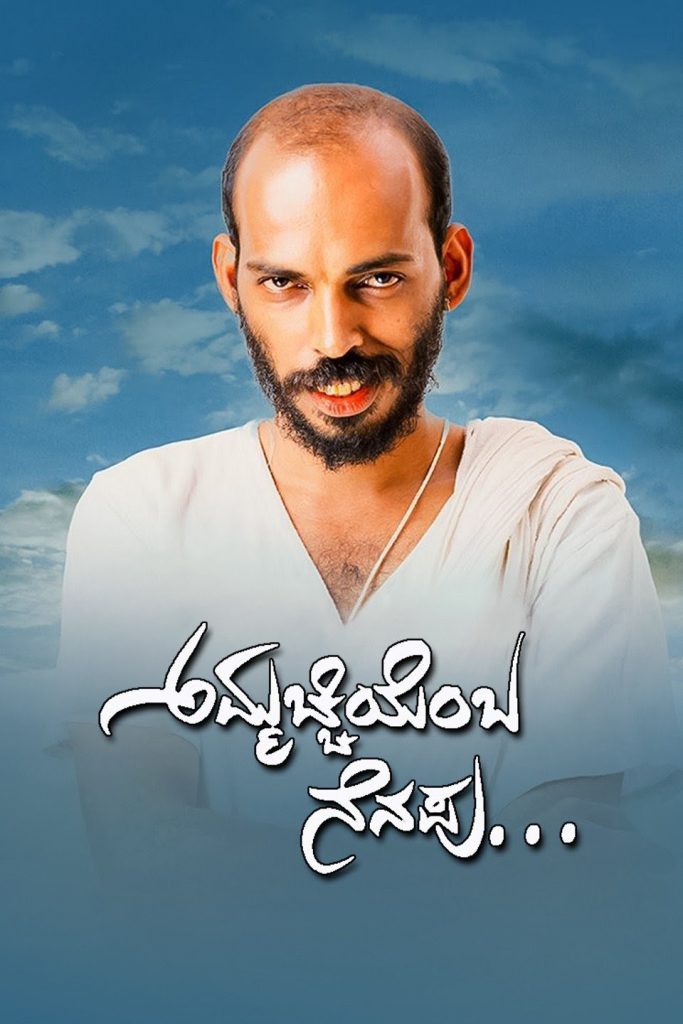Ammachi Yemba Nenapu
Women and their daily life hustle and bustle, trials and tribulations have been dealt with in our movies. Movies where protagonists embark on their journeys to attain their major epiphanies leading to big victories over people who have wronged them, have been done to death. However, ‘Ammachi Yemba Nenapu’ portrays how the lead characters find smaller happiness to live on while not fighting for or in some simply being unable to fight for their rights and that’s what stands out from the other lot of movies. This is an adaptation of the short stories written by famous Kannada writer Vaidehi. Set in a coastal hamlet of Karnataka, the visuals and the different dialect of the Kannada language keeps you engaged throughout along with the brilliant cinematography by Naveen Kumar.
Many women especially those who live under similar settings and circumstances may relate to the story of three lead women – Ammachi, Puttamatte and Akku. Ammachi, played by Vyjayanti Adiga, is a carefree, happy and a ‘progressive’ woman in an otherwise patriarchal setup, her widowed grandmother Puttamatte, played by Radhakrishna Ural (Yes! A man), is a subdued old lady who loves her granddaughter but is very helpless and Akku, played by Deepika Aradhya, is a middle-aged lady who goes around imagining that she is pregnant and everybody keeps her at bay citing her insanity.
The stories of the different main characters are interwoven beautifully and their backstory tracks are shown at different times as the story unfolds. The opening shot depicts the family members of Sheshamma household sleeping in a traditional sloped-roof home styled with Mangalore tiles. The authenticity of the times and properties depicted are maintained throughout the movie which makes the movie relatable and closer to life in the coastal region. Puttamatte lives her life with granddaughter Ammachi, helping the Sheshamma household as much as possible with utmost obligation as the household head late Sheshamma and her husband provided her shelter in times of distress. The backstory of Puttamatte tracks to when she was brought up by a kind, old lady living next door after her almost-useless father killed her mother out of violent instincts, who just for once had dared to revolt his misdeeds. The eventual death of Puttamatte’s husband and her own daughter after child birth leaving Ammachi as an orphan, make her the strong person that she is, yet gullible when it comes to being obligated to the Sheshamma family.
Puttamatte brings up Ammachi with all the love and affection and wants Ammachi to have a good life. But her intentions are superseded by the urgency to marry Ammachi off as suggested by the women folk of Sheshamma household who fear that the fair-complexioned Ammachi may hamper their dark-complexioned daughter’s chance of finding a suitable groom. All of these ‘beauty standard expectation’ undertones are played with subtlety without making it too obvious all the while proving a small point. Puttamatte and everybody around wants Ammachi to marry Venkappaiah, played by Raj B Shetty, a shrewd man who wants to establish his supremacy over Ammachi.
Ammachi, on the other hand being the free spirited woman, doesn’t fret over Venkappaiah or his constant act to tame her. She often blames her grandmother for not letting her study, but tries to live her life on her own terms attempting to establish victories over – what kind of blouse design to wear, face talc etc which seem too small to us, but are bigger triumphs when viewed from the grander scheme of things as characters are a prey to the patriarchal setup. She along with her little friend Seetha, played by Diya Palakkal, wander about in the village sharing occasional giggles at the cost of Venkappaiah and his antics and live the life in their own sweet bubble. But Ammachi and her freedom are crushed, her wings are tied down when she is forced to marry Venkappaiah because of the situations that unfold and also constant pressure from everyone around her. Will this lead to her spirit dying down forever or is there a light at the end of the tunnel, is answered at the climax of the story.
The story track of Akku who is the daughter of late Sheshamma happens to be the most unfortunate one. She is abandoned by her husband and stays at her parents’ house thereafter, but seems to have lost her mind. Not taken care of well by her family, she is lost in her own world where she imagines herself to be pregnant, with a dirty towel in hand at all times indicating how attached she is to her ‘unborn baby.’ Her brothers mistreat her always while her father looks on without uttering a word until the very end but only to order not to stop hurting his daughter. This changes something in Akku who used to take solace only in her dad other than her sweet little nephew. The last lines from Akku leaves us with an empty feeling whether she is the one who lost her mind or her surrounding oozes double standards resulting in her being portrayed as the insane one.
The play has been effectively translated onto the big screen by director Champa Shetty. The actors have done justice to their parts. Be it Vyjayanti Adiga who expresses Ammachi’s free spirit or the lack of it through her eyes, Radhakrishna Ural who portrays the old and helpless Puttamatte, Deepika Aradhya who portrays the distraught and disappointments which Akku faces, Raj Shetty who looks and oozes life to the women taming Venkappaiah or Sringeri Ramanna playing as Akku’s father who portrays guilt and anger with such conviction, everyone have lived their characters flawlessly. Music by Pandit Kashinath Pattar is soothing and a special mention of the song ‘Holeva Holeyaachege’ which is a treat to listen. However, the placement of the songs seems abrupt which is justifiable considering it has been translated from a play. The non-linear directions at certain places depicting the backstory seem to be nicely done without damaging the continuity of the story.
The movie surely doesn’t show how to triumph over the patriarchy or depict women who have won their big battles, but exhibits the little exultations at moments and actions and we end up feeling for the characters and their journeys which take different turns. It also impersonates real life happenings wherein women turn out to be the flag-bearers of patriarchy, don’t support other women and try to torchlight the path to please and live for the men in their lives instead of themselves. The movie serves a visually rich experience and would appeal to the new found audience for art movies. A definite thumbs up from this reviewer’s side.
Disclaimer: The above review solely illustrates the views of the writer.




